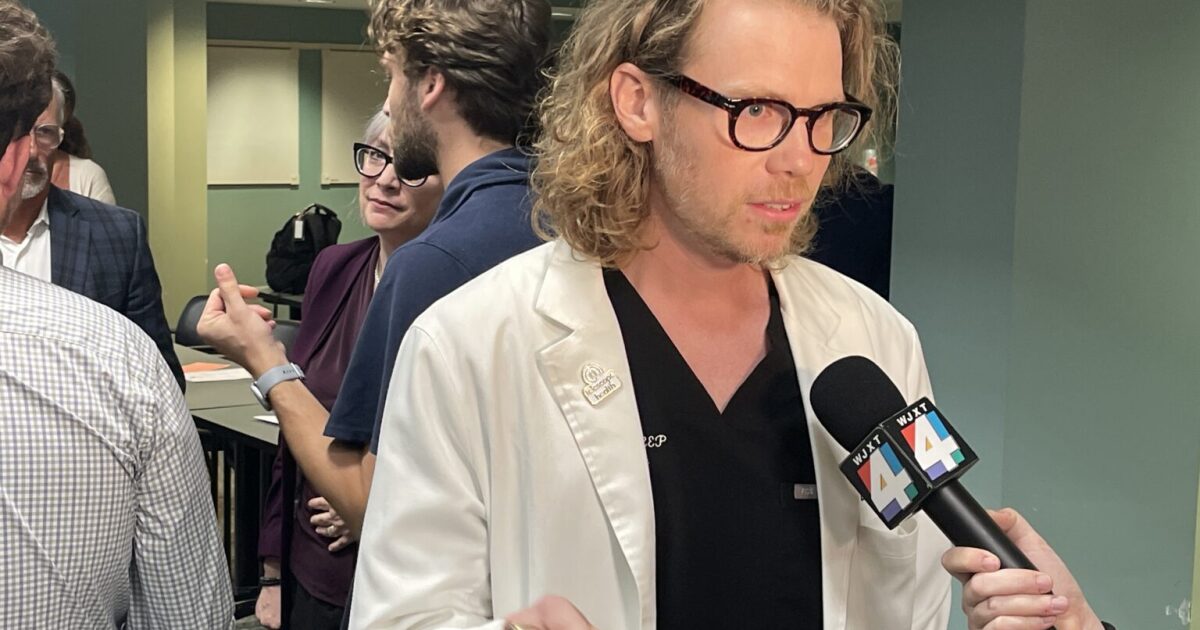The recent discussions surrounding Jacksonville’s health funding underscore a critical interplay between city budgetary constraints and the need for accessible health care services, especially for the uninsured. The Jacksonville City Council Finance Committee made headlines when it partially reinstated funding for crucial health initiatives, responding to significant public pressure from a coalition of medical professionals, nonprofit clinics, and supportive local lawmakers.
The committee voted to restore $1.5 million to the Healthlink Jax telehealth initiative and $270,000 to be divided among six safety net clinics participating in the JaxCareConnect program. This decision emerged during a tense final budget hearing following a public meeting where key stakeholders, including leadership from Ascension St. Vincent and Telescope Health, passionately argued for the preservation of these programs.
### A Vital Link to Health Care
Healthlink Jax serves as a vital telehealth service aimed at providing on-demand medical consultations, connecting uninsured residents with primary care follow-ups. According to Dr. Matthew Thompson, CEO of Telescope Health, the telehealth initiative effectively diverts patients from emergency rooms—an essential function given the rising costs associated with ER visits for minor health issues. In the preceding year alone, Healthlink Jax deterred over 1,300 unnecessary emergency room visits, reinforcing its role in alleviating strains on local healthcare resources.
The program’s connection to JaxCareConnect further illustrates its community impact. JaxCareConnect facilitates the navigation of healthcare for uninsured individuals, addressing social determinants of health by providing referrals to local clinics while supporting services that tackle food insecurity and transport barriers.
### Budgetary Pressures
Despite the restoration of some funding, it’s essential to note that the overall budget reinforces persistent tensions. The finance committee had previously cut approximately $3.77 million from proposed public health expenditures while attempting to accommodate an eighth-mill property tax cut, impacting city revenue significantly. Council member Michael Boylan insisted on the importance of health funding, emphasizing that cutting these services would lead to a greater financial burden on the city in the long run.
The reinstated $1.5 million allocation for Healthlink Jax, alongside partial funding for the safety net clinics, illustrates the recognition of health as a non-negotiable city priority, despite overarching fiscal challenges. However, the battle for comprehensive support remains ongoing. The rejection of additional funding for other crucial initiatives, such as a proposed city-subsidized dental care initiative and a program focused on infant mortality, highlights the precarious nature of public health funding, always vulnerable to budgetary cuts.
### Stakeholders’ Voices
Healthcare advocates are outspoken about the contributions of both Healthlink Jax and JaxCareConnect. A letter from Dr. Ali Kasraeian, president of the Duval County Medical Society, encapsulates this perspective, arguing that investments in health services ease pressure on hospitals and allow providers to focus on patient care without excessive financial burdens tied to individual cases.
Moreover, personal testimonials, like that of Jacksonville resident Jenica Ervin, emphasize the tangible benefits of JaxCareConnect. Ervin’s experience highlights how such programs reduce the potential for medical debt, allowing citizens to prioritize their health without the shadow of financial insecurity.
### The Bigger Picture
The recent developments signify a delicate balancing act—meeting immediate public health needs while negotiating the complexities of budget limitations. It is evident that increasing demands from the local community and healthcare providers will require continuous dialogue with city officials regarding funding allocations.
The anticipated federal funding reductions for Medicaid and ACA programs exacerbate this urgency. As Medicaid serves a considerable portion of Duval’s population, ensuring local health initiatives are adequately supported will be vital for mitigating the potential fallout from these federal shifts.
### Moving Forward
The Jacksonville City Council’s eventual approval of the budget—with its partial restorations—suggests a willingness to respond to community needs, albeit with caution. Elected officials like Boylan and Carlucci are at the forefront of advocating for public health investments, emphasizing their correlation with economic stability and overall quality of life.
Stakeholders assert that further investment in public health will not only facilitate better health outcomes but will likely reduce long-term costs associated with emergency care and uncompensated care within hospitals. This perspective reinforces the argument that preventive measures, such as those provided by Healthlink Jax and JaxCareConnect, can yield substantial savings and health benefits over time.
### Conclusion
As Jacksonville navigates the complexities of healthcare funding pressures, the reinstated allocations for telehealth and safety net clinics represent a cautious yet necessary approach to public health. The advocacy by medical professionals and community leaders demonstrates that health care is not merely a budget line item but a crucial societal pillar. Ensuring equitable access for the population will require ongoing commitment and collaboration to forge a healthier Jacksonville, moving forward amidst existing and future challenges.
Source link










